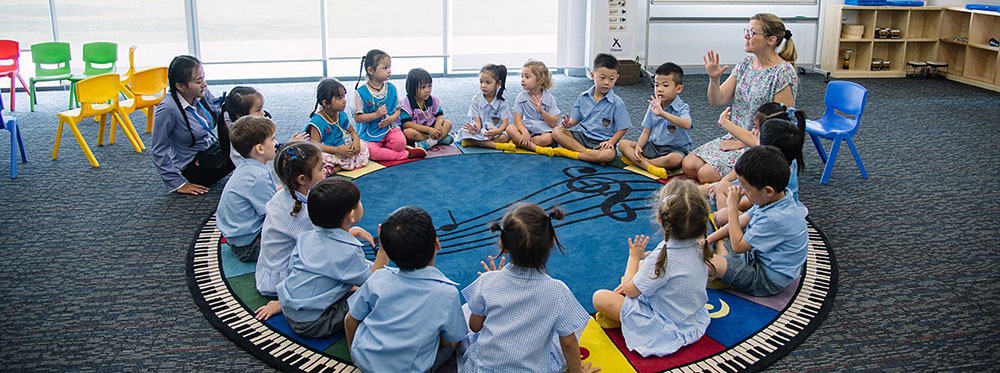An essay by Sara Howell, Deputy Head Academic (Prep School), Rugby School Thailand
Collaboration, teamwork, or working together – however it may be described, is something that has been discussed in education for decades. No longer are children sitting at individual desks and listening to didactic teaching and no longer are schools benefitting from autocratic leadership. We have moved on. We are now embracing the group or team. Our classroom and school environments have changed to support this with tables and chairs pushed together, reflecting a physical shift as well as a metaphorical one.
I have always been a great believer in collaboration, not only as a teaching and learning method but also as a leadership tool in my own role. The diversity of ideas that come from collaborative work enriches the outcome, whether this is seen as progress in academic achievement or the development of a school in the wider sense. Renowned educational professor, researcher, and writer, John Hattie, affirmed in his Visible Learning conference in 2016 that Collective Teacher Efficacy is the collective belief of teachers in their ability to positively affect students. Clearly, teachers working together can and does impact advantageously on pupil outcomes. It is therefore a transferable skill that we should be nurturing with our pupils but also modeling ourselves.
But how do we engage and promote collaboration in our classrooms? How do we develop our pupils to enable them to work effectively together? Here at Rugby School Thailand, teachers and learners consider a range of learning and character traits and we recognise that collaboration is a fundamental aspect of being a good learner as well as a progressive citizen.
At RST, examples of successful collaboration are embraced and consistently visible. Some clear examples are with our House or Divisional competitions, in the many productions, plays, and performances throughout the school, in our a wide variety of sports teams, in the huge array of activities which include to name only a few: Eco Club, Baking Club, S.T.E.A.M, Lego League, Duke of Edinburgh and the RST Union, and in our pupil-led Food Committee and School Council. The teachers are also consistently engaged in cooperatively developing the school with departments meeting to develop their subjects, cross-site discussions to encourage consistency across the whole school, the Computing Committee to improve the use of technology, the Teaching & Learning Group who aim to inspire positive growth in learning.
It is important as teachers that we plan for collaboration, which then becomes embedded in our ethos, curriculum, and discourse. Collaboration should be an explicit element of our learning culture. We need to ensure that our learners understand what teamwork looks like, recognise the benefits of doing it well and, of course, facilitate and model it. Cooperation is a transferable and life-long skill that is seen in a plethora of settings globally. Companies rely on executive groups to steer their businesses forward, families come together to raise their households, a pride of lions work together to take down their prey – collaboration is everywhere, so it is essential that we all gain an understanding of how to work well as a unit.
It feels safe to stick to what you know and to become attached to your own theories and concepts but we want to challenge RST pupils and staff to diversify by working with a range of different people and in turn seek to broaden their own views, ideas and ways of working.
To find out more about Rugby School Thailand, click here .

